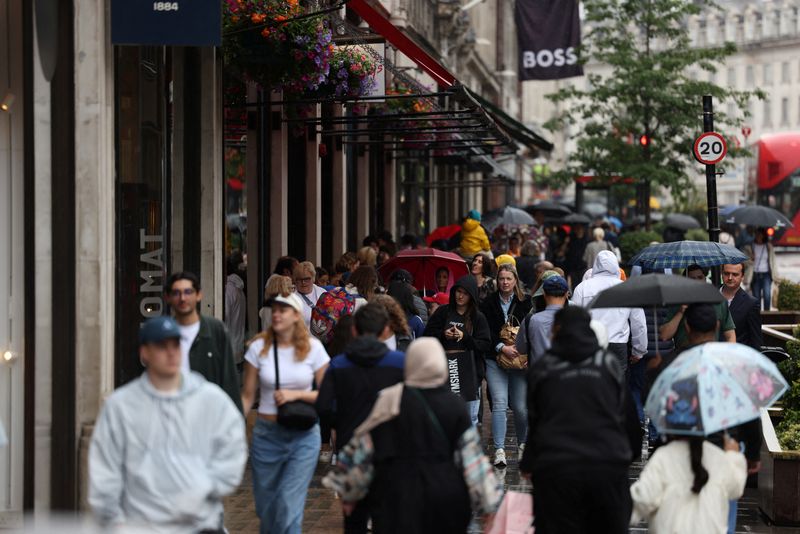UK shop price inflation holds at lowest since October 2021
2024.07.30 02:37
LONDON (Reuters) – Prices in British shops rose at the joint-slowest rate since October 2021 this month, held down by falls in the cost of non-food items as food prices continued to rise, the British Retail Consortium said on Tuesday.
Shop prices in July were on average 0.2% higher than a year earlier, the same annual increase as in June and joint lowest since October 2021.
Food prices rose by 2.3%, the smallest increase since December 2021, while non-food prices dropped by 0.9%.
“Holiday makers could pick up bargain summer wear and summer reads as clothing and footwear prices fell for the seventh consecutive month amidst persistent weak demand, and the prices of books fell,” BRC Chief Executive Helen Dickinson said.
On Monday, the Confederation of British Industry reported that retailers had suffered a fall in sales this month due to bad weather and poor general trading conditions.
Many Britons are still feeling the squeeze after a surge in inflation in 2022 and 2023, and wages have only recently started to recover the lost ground.
Headline consumer price inflation targeted by the Bank of England held at its 2% target in June but is forecast to rise as the effect of falls in energy prices in the second half of last year begins to drop out of the annual comparisons.
The BoE – which may cut interest rates on Thursday – is most concerned about services price inflation, which at 5.7% in June was well above the central bank’s forecast.

However, Dickinson warned that food prices could also be about to rise as the effect of last year’s fall in commodity prices fades too and climate change damages harvests following unusually wet weather in England and extreme heat elsewhere.
The BRC figures came from prices collected by NielsenIQ between July 1 and July 7.








